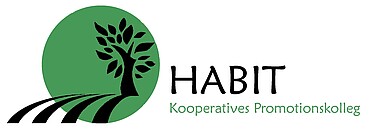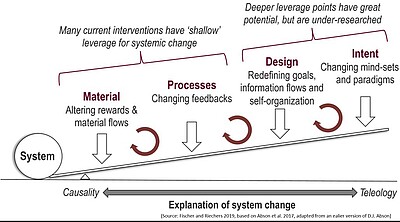The graduate college HABIT is part of the international, inter- and transdisciplinary research on sustainability and transformation. Two innovative approaches form the conceptual framework: The complex character of agricultural landscapes is captured through a social-ecological systems approach (Lescourret et al. 2015). Thereby, biodiversity decline as well as biodiversity promotion are considered in the context of other processes of the social-ecological system. For the topic of biodiversity promotion, a focus is set on the social challenges of climate change and rural empowerment.
The second approach of the research program is a system-oriented perspective. Thus, the graduate college picks up successful examples (bright spots, e.g. Bennett et al. 2016). This makes it possible to identify leverage points (Abson et al. 2017) for transformation. The graduate college will particularly focus on effective leverage points in order to strengthen transformation processes and to reduce or eliminate blockages, e.g. in the form of manifest conflicts (cf. Bieling et al. 2020 on the example of the "pro Biene" referendum).
Three basic principles of the graduate college HABIT
The systems-based, consistently inter- and transdisciplinary and solution-oriented orientation of the graduate college is implemented through three basic principles:
- consideration of ecological, economic, and societal dimensions,
- consideration of different spatial and temporal scales, and
- linking sound scientific contributions with a practical solution-oriented perspective, based on the leverage points for sustainability transformation.
Focus on Baden-Württemberg
The empirical focus on Baden-Württemberg ensures a close connection of the PhD projects in the graduate college HABIT. Depending on the topic, but with the greatest possible overlap, the focus is on the landscape scale, the farm level, or even on value chains up to the consumers.
This results in a unique network of projects that explore the transformation potential with a common direction but from different perspectives.

